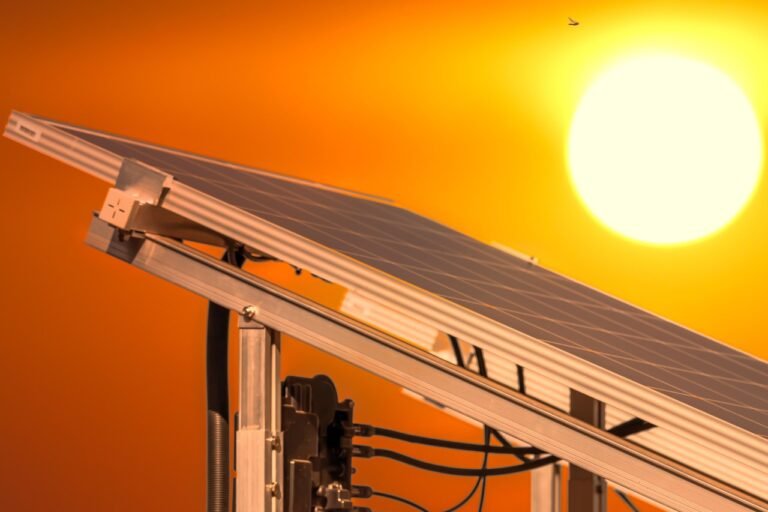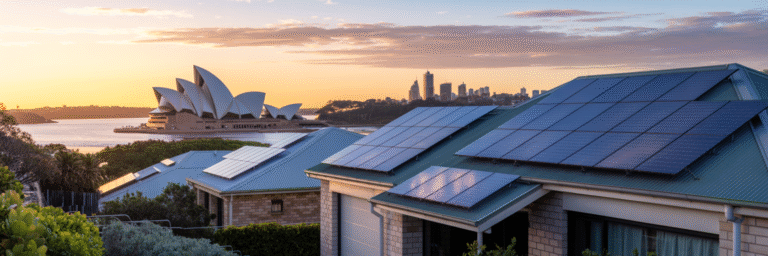Understanding Solar Panel Installation
The installation of solar panels for home use has gained significant popularity in recent years, largely due to the potential for reducing energy costs and environmental benefits. However, before embarking on a DIY journey, it is imperative to understand the installation process, which involves several critical steps.
The first step in installing solar panels is thorough planning. Homeowners must evaluate their energy needs and determine whether solar energy is a suitable option for their household. This includes assessing the roof’s orientation, angle, and size, as these factors influence the efficiency of solar panels. A south-facing roof typically captures the most sunlight, thus generating more electricity. Additionally, one must consider the shading from trees or nearby structures, which can significantly reduce solar output.
-Explore Solar Panel Companies Near You in Australia-
Following the preliminary evaluation, selecting the right type of solar panels is essential. There are various types available, including monocrystalline, polycrystalline, and thin-film panels, each offering different efficiencies and costs. Researching the specifications and performance of these panels can aid homeowners in making informed decisions that best meet their energy requirements.
Complying with local building codes and regulations is another vital step in the installation process. Many regions have guidelines governing solar panel installations, which include zoning laws and permitting processes. Engaging with local authorities can provide valuable insights into these requirements, ensuring a hassle-free installation experience.
Lastly, it is crucial to evaluate the structural integrity of the roof before proceeding. Existing damage or wear may affect the ability to safely support solar panels. Consulting a professional, if necessary, can help determine any repairs needed before installation can commence.
By understanding these foundational aspects of solar panel installation, homeowners can more confidently approach the question of, can I install solar panels myself and prepare for a successful installation process.
Assessing Your Skill Level and Resources
Before embarking on a solar panel installation project, it is crucial to honestly assess your skill level and available resources. Installing solar panels for home use involves technical knowledge, physical ability, and the proper tools. Begin by evaluating your experience with similar tasks, such as roofing or electrical work. If you have prior experience with complex home improvement projects, you may possess the skill set needed to fit solar panels successfully.
-Explore Solar Panel Companies Near You in Australia-
Next, consider the technical aspects of solar panel installation. Familiarize yourself with electrical systems, including how to connect solar panels to an inverter and ultimately to your home’s electrical system. A solid understanding of local building codes and regulations is also necessary, as these rules can dictate how and where solar panels must be installed. If you are unsure about these technical components, seeking solar panels advice from professionals can be beneficial, even if you do intend to complete the work yourself.
Physical capability is another critical factor. Installing solar panels typically requires working at heights, using ladders, and lifting substantial equipment. Assess your comfort level with heights and your physical strength to tackle the installation safely. It may be necessary to enlist the help of a friend or family member to ensure safety and efficiency during the process.
Finally, consider the tools you will need for the installation. Essential equipment may include a solar panel mounting system, wiring tools, and safety gear. If you lack any necessary tools, consider borrowing or renting them to minimize costs. Being well-prepared and aware of common challenges—such as unforeseen weather conditions or misalignment during installation—can significantly impact the success of your solar panel project, ensuring you are ready to tackle any hurdles that arise.
Legal and Regulatory Considerations
When contemplating the installation of solar panels for home use, it is essential to navigate the legal and regulatory landscape carefully. Each locality may have specific requirements that must be adhered to prior to beginning any solar panel installation. One of the primary steps in the installation process is obtaining the necessary permits. Before proceeding with solar panel installation, ensure that you check with your local government or municipal authority to determine what permits are required. This may include building permits as well as electrical permits.
-Explore Solar Panel Companies Near You in Australia-
Moreover, understanding and complying with local electrical codes is crucial. These codes are established to ensure that solar panels are installed safely and effectively. Installing solar panels without adhering to these codes could not only result in penalties but also pose safety risks. It is, therefore, advisable to familiarize yourself with the National Electrical Code (NEC) and any local amendments that may apply when figuring out how to fit solar panels on your property.
Additionally, homeowners associations (HOAs) in certain neighborhoods may have their own set of rules that could impact your ability to install solar panels. Some HOAs may impose restrictions on the appearance of solar installations or require prior approval before any alterations are made to the roofing system. Engaging with the HOA early in your planning process can help clarify any constraints and prevent potential conflicts later.
Lastly, while it is possible to install solar panels yourself, consulting with professionals or local authorities can provide valuable solar panels advice. Their expertise can ensure that you remain compliant with all regulations, potentially streamline the installation process, and ultimately result in a more efficient solar energy system. Ensuring compliance not only protects your investment but also maximizes the benefits of going solar.
The Pros and Cons of DIY Solar Panel Installation
Installing solar panels for your home can be an enticing prospect, especially for those interested in reducing costs and taking control of their energy solutions. However, deciding to undertake a DIY approach involves weighing several pros and cons. One of the primary advantages of installing solar panels yourself is the potential cost savings. By eliminating labor costs associated with hiring professionals, homeowners can significantly reduce the overall expense of the installation. This money-saving aspect appeals to many who see the return on investment in energy savings and government incentives.
Furthermore, engaging in a DIY solar panel project provides homeowners with greater control over the installation process. This autonomy allows individuals to select specific components and tailor the system to meet their unique energy needs. Learning how to fit solar panels enhances one’s knowledge about solar energy technology and can be satisfying and rewarding. Moreover, completing a self-installation can foster a sense of accomplishment.
Despite these advantages, several disadvantages warrant consideration. Firstly, installing solar panels involves a level of technical expertise, particularly concerning electrical systems and structural integrity. Homeowners may encounter unforeseen challenges, which could lead to further costs if mistakes occur. Additionally, improper installation poses risks not only to safety but may also affect the performance and longevity of the solar panels. Another potential pitfall is the issue of warranties; many manufacturers may void warranties if the installation is not performed by a certified professional.
-Explore Solar Panel Companies Near You in Australia-
In conclusion, while there are several benefits associated with DIY solar panel installation, such as cost savings and increased control over the installation project, homeowners must also weigh the risks and challenges. Assessing one’s skill level, understanding the complexities of solar technology, and being mindful of safety precautions are crucial steps in deciding whether to proceed with a self-installation.



